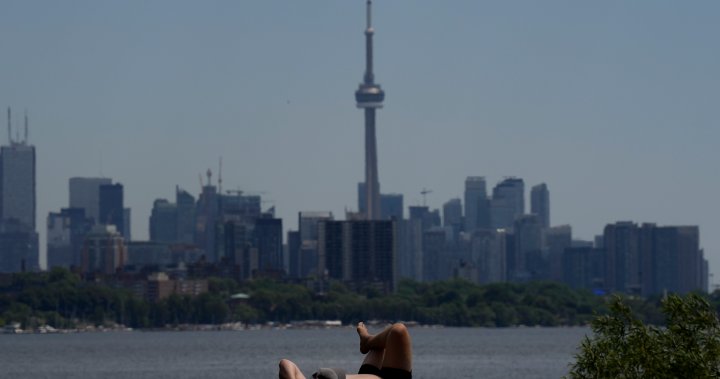
As heat waves get hotter, experts warn against becoming ‘air conditioned society’
Global News
Hundreds of people who perished during the historic heat wave in British Columbia last summer died in homes ill-suited for temperatures that spiked into the high 30s.
Hundreds of people who perished during the historic heat wave in British Columbia last summer died in homes ill-suited for temperatures that spiked into the high 30s and beyond for days, a report by B.C.’s coroners’ service found this month.
It was hot outside, but inside it was often much hotter, with tragic consequences.
Of 619 deaths linked to the heat, 98 per cent happened indoors, the review from the coroners’ service shows.
Just one per cent of victims had air conditioners that were on at the time.
But one year on, experts caution that residents and policymakers need to think beyond air conditioning as the predominant solution to the risks as climate change fuels heat waves that scientists say are becoming hotter and more frequent.
“What I worry is that we’re talking about mechanical ventilation as this umbrella measure for all buildings, and that’s hugely problematic if that’s what we ultimately end up doing,” said Adam Rysanek, assistant professor of environmental systems in the University of British Columbia’s school of architecture.
“We’re going to get totally accustomed to this air-conditioned society,” with windows closed all year round, said Rysanek, director of the building decisions research group at the university.
Alternative answers can be found in how buildings and cities are designed, landscaped and even coloured, since lighter surfaces reflect more of the sun’s energy, he said.













